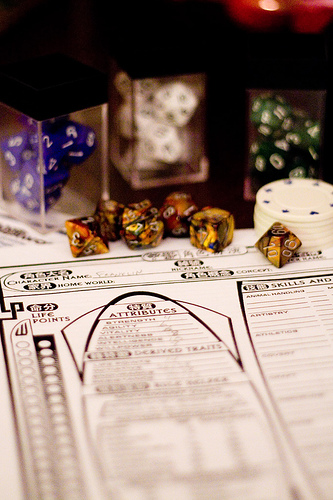In order to successfully create a great digital experience with Drupal, you need a great Drupal team. Building a great team requires some thoughtful planning and possibly widening your net a bit. In this blog series, we'll be looking at the 5 Steps to Build a Great Drupal Team.
With the rapid growth and change of the web, and the constant change of roles and job definitions, employers in the field of web development find they’re competing to attract the brightest talents. It’s definitely a job seeker’s market. It wouldn’t be overstating the fact to say that hiring in all fields of technology is a major challenge. In that sense, the Drupal community is no different.
Step 1: Understanding typical teams, roles and skills
In Step 1, we’re going to talk about team composition, roles and job titles along with the skills you should be expecting to encounter in a Drupal project.
-
1Typical implementation teams
-
2Explaining Drupal Roles
-
3Matching skill levels to requirements
If you’re an experienced digital agency but adopting Drupal for the first time, or you are bringing Drupal development in-house for the first time, or if you're looking to leave freelancing behind and run your own Drupal company, then you’re probably hiring and growing your first Drupal team.
The positions you need to fill will depend on your existing team members’ skills and the limitations of the training needs you can meet. The roles in a particular team depend on a number of factors:
-
The size of the company or size of projects
-
Are you client facing or working on internal projects?
-
Your company’s niche focus
Typical implementation teams
The varying features and functionality of Drupal projects dictate team composition and size. The difference between small and large teams is more than a matter of numbers. To understand what type of team you need, it helps to understand the composition of each.
Small Teams: Where everybody knows your name
Small teams are appropriate for straightforward development projects involving a single site, limited custom development, and little or no systems integration. On a small team, every member of the team is aware of all aspects of the project, and roles might be blurred. Communication and coordination is relatively easy as a result.
Angelo Vanmarcke, lead developer at MAISTER creative service unit is responsible for all aspects of implementation. The internal team collaborate on the visual design, flow charts and planning. In their case, the project manager is also a junior developer who can also do some site development, translation, pixel-perfect theming and client training. Overall it's the job of their project manager to consult with the client bringing designs and plans back and forth from client to internal team. “Sometimes, when things go wrong, I personally communicate with the client”, Angelo says.
A small implementation team consists of two to five people. The roles on a small team may include:
-
Technical Lead (required)
-
Project Manager (required)
-
Junior Developer
-
Themer
-
Quality Assurance Specialist
Large Teams: Scaling to meet complexity
Project teams grow in size to accommodate more complex projects. Large teams are equipped to handle complex custom development projects involving one or more codebases.
“Roles become more crystallized on larger teams”, says Balázs Dianiska, Technical Consultant at Acquia. “As teams grow in size, communications can break down. In order to scale, you need to clearly define responsibilities and tasks.”
Large teams often have more than one person filling a role and a hierarchy of responsibility. Roles on a large team may include:
Project Management Team
-
Engagement Manager
-
Project Manager
-
Quality Assurance Specialist
Technical Team
-
Technical Architect
-
Technical Lead
-
Senior Developer/Developer
-
Junior Developer
-
Themer
Explaining Drupal Roles

As I’ve researched the Drupal-specific roles, colleagues and partners have agreed that team roles don’t always correlate to job titles. Role playing games (RPGs) provide a good analogy to explain this. In RPGs you have team roles which are different from character classes. Roles such as defender, controller, leader or striker can be taken by different characters; perhaps your striker is a knife-wielding rogue or a magic-hurling warlock. Likewise, on your Drupal team you may have a site builder who is responsible for client training; or a front-end developer who is knowledgeable enough about Drupal to be the themer on a team.
If you’ve never built a Drupal team before, familiarize yourself with these typical roles listed below.
Project Manager
Project managers deliver projects on time and in budget. They manage project timelines, delegate tasks, and track project resources. They need excellent communication skills, and should be highly organized. We strongly recommend knowledge of Agile methodology and one or more project management software packages.
Visual Designer
Visual Designers create the look and feel of your site. On larger teams, designers don’t necessarily touch Drupal. However, if they understand The Drupal Way, they will be able to create more efficient designs which are easier to implement. Designers could achieve the level of Drupal knowledge they need in a
Drupal in a Day course, for example.
Site Builder(s)
There may be multiple people completing the site building tasks on any given project. At the foundation of Drupal skills, site building is the most essential requirement for all development roles. Team members responsible for development should know the configuration of the most popular modules; content types and views; roles and permissions; navigation, menus, taxonomy; actions and workflows. They should be able to compare the best approaches in any given situation. The learning objectives in our
Site Building course have a good outline of the skills required.
Front-end Developers
Front-end developers takes the visual designer’s work and turns it into a web page or interface. They program interaction with JavaScript and/or a library such as jQuery, YUI or Prototype. They test cross-browser, cross-platform, and/or cross-device compatibility for inconsistencies.
Themer
Themers are front-end developers with specialist knowledge of the theme layer in Drupal. They create sub-themes on common base themes and may create custom themes. This might not be a distinct role on many teams. Instead, a developer on the team might have this expertise.
Back-end Developers
Back-end developers modify existing code and write new custom code to power the functionality of a Drupal site. A typical Drupal build will have two types of modifications which require custom code changes. Junior developers should be able to handle small changes in markup output. Senior developers will be required where there are integrations or new functionality in custom modules. We teach the essentials of
module development, but senior developers learn the nuances of best practices with mentoring and experience.
Technical Leads and Architects
Technical leads and architects are back-end developers with broad experience with Drupal. They understand how to analyze and set requirements. They establish the high-level development strategy through module selection and configuration. They focus on sitewide concerns such as integration, scalability, performance, and security.
However, even these highly experienced experts wouldn’t be expected to know everything there is to know about Drupal.
Specialist Roles
These might include user experience specialists, quality assurance specialists, applications testers, accessibility compliance specialists, and other roles specific to your project. Not all the roles on your team will need to know Drupal in and out. Arguably, some of the roles, such as quality assurance, don’t need to know Drupal at all, though they could get the base level of understanding through
a free 3 hour “Hello Drupal” course to improve communication internally.
Matching skill levels to technical requirements
This matrix will help you plan a team based on the technical skills that your project requires.
Key
-
Beginner 1
-
Intermediate 2
-
Advanced 3
-
Expert 4
Drupal specific skills
|
|
Project manager |
Visual Designer |
Junior Developer |
Developer (front end) |
|
Drupal Community Involvement |
1 |
1 |
2 |
3 |
|
Content modelling and site building |
0 |
1 |
3 |
3 |
|
Theming |
0 |
2 |
2 |
2 |
|
Architecture and planning |
0 |
0 |
1 |
1 |
|
Custom module development |
0 |
0 |
0 |
1 |
|
Performance and security |
0 |
0 |
1 |
1 |
|
|
Developer (backend) |
Senior developer/ technical lead |
Technical architect |
|
Drupal Community Involvement |
3 |
4 |
4 |
|
Content modelling and site building |
3 |
4 |
4 |
|
Theming |
2 |
3 |
3 |
|
Architecture and planning |
2 |
3 |
4 |
|
Custom module development |
2 |
3 |
4 |
|
Performance and security |
2 |
3 |
4 |
There are two Drupal specialist roles which sometimes appear job titles, though we have not included them in the table above
-
Site Builder: This is a Drupal specialist who may or may not have the levels of HTML/CSS/PHP to have a Developer job title. They sometimes take other client facing tasks such as training.
-
Themer: This is usually a front end developer who has Drupal expertise. This is a highly specialized area as themers must know a considerable amount of Drupal site configuration, as well as client side development with CSS and JavaScript.
Web development skills not specific to Drupal
The Drupal community keeps a list of transferable skills which would be useful in assessing potential candidates.
The table below should give you a rough idea of the typical skill levels of each job title, of course keep in mind that the roles in web development are constantly changing.
|
|
Project manager |
Visual Designer |
Junior Developer |
Developer (front end) |
|
PHP |
0 |
1 |
2 |
2 |
|
HTML |
1 |
4 |
3 |
4 |
|
CSS |
0 |
4 |
2 |
4 |
|
JavaScript |
0 |
2 |
2 |
3 |
|
Version control |
1 |
0 |
1 |
2 |
|
MySQL |
0 |
0 |
0 |
2 |
|
Infrastructure** |
0 |
0 |
0 |
0 |
|
|
Developer (front end) |
Developer (backend) |
Senior developer/ technical lead |
Technical architect |
|
PHP |
2 |
3 |
3 |
4 |
|
HTML |
4 |
4 |
4 |
4 |
|
CSS |
4 |
2 |
2 |
2 |
|
JavaScript |
3 |
2 |
2 |
2 |
|
Version control |
2 |
2 |
3 |
4 |
|
MySQL |
2 |
3 |
3 |
4 |
|
Infrastructure** |
0 |
1 |
3 |
4 |
** Infrastructure includes server configuration such as Apache, Nginx and multiserver environments; and cache tools such as Varnish, Memcache.
As you can see there isn’t a clear cut “dream team” for Drupal. Also it’s worth considering how you can nurture junior developers to become the senior developers on your teams. What kinds of mentoring and training programs do you run for your teams?
If you’d like to know more and talk with one of our experts here at Acquia, please sign up to our online session with guest speaker, Summer Swigart, Practice Manager.
Thank you to Meagen Williams, Program Director here at Acquia for major contributions to this article.
































